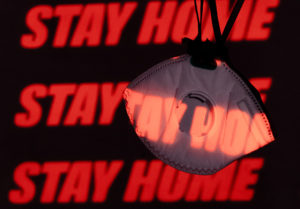What Would a Humanist Do? Partying Like It’s 2019
 Photo by Aryan Singh on Unsplash
Photo by Aryan Singh on Unsplash Today we bring you our latest installment of “What Would a Humanist Do?”—offering multiple AHA staff opinions on the same question. As with our long-running “Humanist Dilemma” column by Joan Reisman-Brill, readers often ask what qualifies as a humanist problem. Our answer: humanists are committed to being good without a God, but sometimes they need a little advice on how to pull it off.
Q: My neighbors have parties on some weekends, with at least thirty guests. I want to call the police and report the social distancing violation. But the history of police brutally makes me wary. I don’t want to be responsible for someone being hurt, arrested, or killed. COVID-19 is serious, though, and they’re violating the rules.
—What Would a Humanist Do?
A’s:
You’re facing an immensely frustrating situation. Under normal circumstances, I’d take your police-aversion into account and recommend that you simply engage your neighbor in conversation to express your concerns. Of course, even simple conversation is more complicated these days.
You need to find a way to let your neighbors know that what they’re doing is endangering the public health of the community. Do you have their contact information? Since you can’t just knock on their door, a text or email could do the trick. If you have a casual relationship with these neighbors, maybe you could invite them for a socially distant walk to “catch up.” Expressing your thoughts within the context of a larger conversation about your shared concerns could prove very effective.
I understand your reluctance to call the police, but if you’re unable to get through to your neighbors by other means, it might be your only avenue.
—Peter Bjork
It certainly sounds like your neighbor is creating a dangerous situation—both for the people who attend the repeated parties and for the other people in your neighborhood. At the same time, I can understand why you would be reluctant to call in the police. I think the first step is to calmly let them know that you’re concerned their parties could be dangerous to you, other neighbors, their guests, and to themselves.
Of course, it’s likely that—since they’re already ignoring reasonable social-distancing guidelines—your neighbor will ignore your valid concerns. Then it’s time to think about bringing in some kind of authority, but that doesn’t necessarily mean the police. Do you live in an apartment building or complex that has a landlord or building manager? Maybe you live in a condo building with a board of directors or a neighborhood with an HOA. In any of those situations, you should make sure those entities know the parties are happening. You can also let them know them know that you want the complaint to remain anonymous for your safety. If none of that works, you’ll have to decide whether you think the situation is dangerous enough that it overrides your concerns about involving law enforcement. Should you decide you don’t want to call in the police at all, then your only choice will be to stay inside your residence when the partygoers start arriving and try to disinfect any common surfaces after the guests go home.
—Nicole Carr
I applaud you for taking the right level of caution in approaching this situation. Starting a dialog when parties aren’t going on is important—that way you’re not “crashing” anything. Explain to them how the noise is bothering you first and foremost; most neighbors know to keep it down when they’re asked politely. Once you’ve broken through there, I’d remind them about social distancing and that COVID-19 cases in the United States are only anticipated to increase, not decrease—at least for a short time. Awareness of noise might prompt them to keep parties quieter, which will keep the police from getting involved in any exaggerated confrontations.
—Sam Gerard
I understand it would be ideal to call the police and have them peacefully take care of the violation. However, escalation into anger and violence is a concern. Police may be very frustrated with current local regulations and/or the public response to those regulations, making it difficult for them to calmly access and address the situation. Moreover, I worry about the possibility of increased exposure to all involved if it comes to people being arrested.
I recommend communicating directly with your neighbor instead. You can do so by talking with them in person or writing a letter (maybe anonymously), depending on how comfortable you are with them and with expressing yourself. Emphasize that we all want to be with our friends and family, but we must be patient or else risk longer and more serious lockdown orders. Remind them that asymptomatic people are spreading the virus without being sick themselves. Give examples of other big group gatherings that have proven to be the cause of outbreaks. Request that they limit their numbers and practice healthy guidelines so they can keep everyone safe. Add concerns you have for particular people in your area (i.e. any neighbors over sixty-five or those with health issues or who are already struggling during the pandemic). Let them know your goal is to look out for each other. You could also see if others are willing to speak up so it doesn’t need to be a you-against-them issue, rather a neighborhood concern.
—Emily Newman
For humanist advice from multiple perspectives on all manner of situations, please send your question to wwhd@americanhumanist.com.
